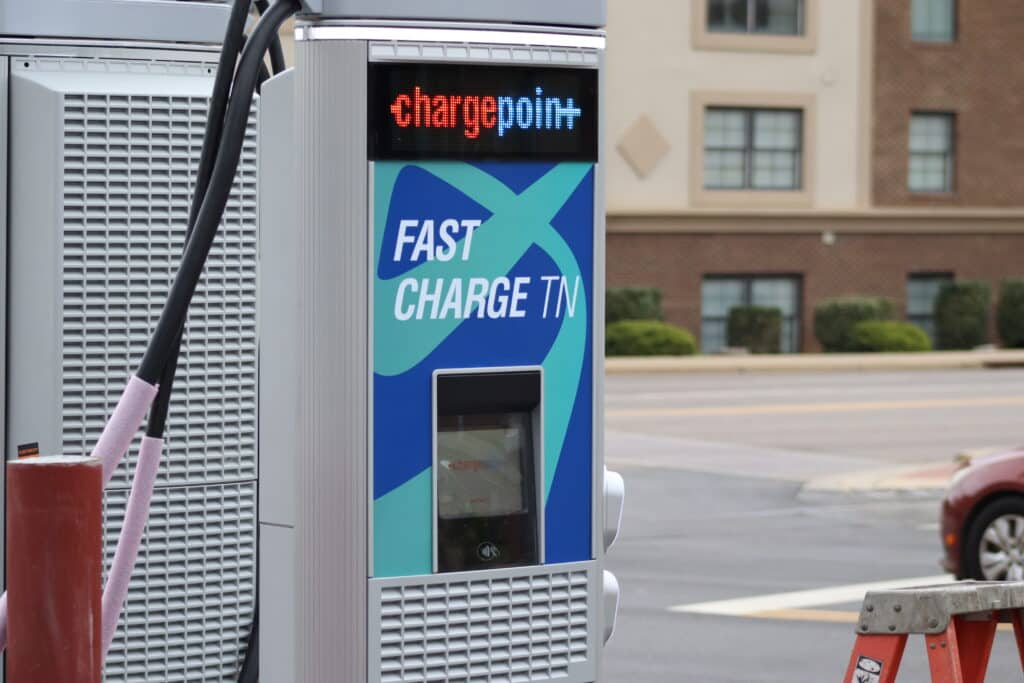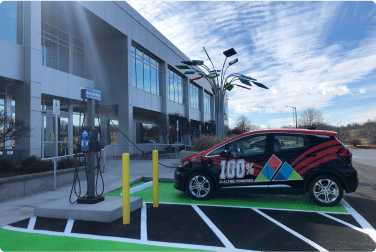Electric Vehicle Charging in Your Community
BrightRidge supports electric vehicles in our community by helping provide EV charging stations throughout our service territory.

Cherry Street Parking Lot in Downtown Johnson City
43 N. Roan Street
Johnson City, TN 37604
Level 3 Charging: $0.42 per kWh

Hands On! Discovery Center at the ETSU Gray Fossil Site
1212 Suncrest Drive
Gray, TN 37615
Level 2 Charging: FREE

Jonesborough Visitor’s Center
117 Boone Street
Jonesborough, TN 37659
Level 2 Charging: $1 per hour
Learn More About Electric Vehicles
Charging Stations in Your Community
By using PlugShare.com, you can find other charging stations in the area.
Find Charging StationsFuel Savings Calculator
Estimate your potential fuel savings from switching to an electric vehicle.
Learn more at TVA.GOVFederal Incentives
The Office of Energy Efficiency and Renewable Energy offers incentives for alternative fuels and advanced vehicles.
Learn more at ENERGY.GOVTVA Electric Vehicles
TVA is helping drive innovation in the Tennessee Valley to increase the use of EVs in the region.
Learn more at TVA.GOV
